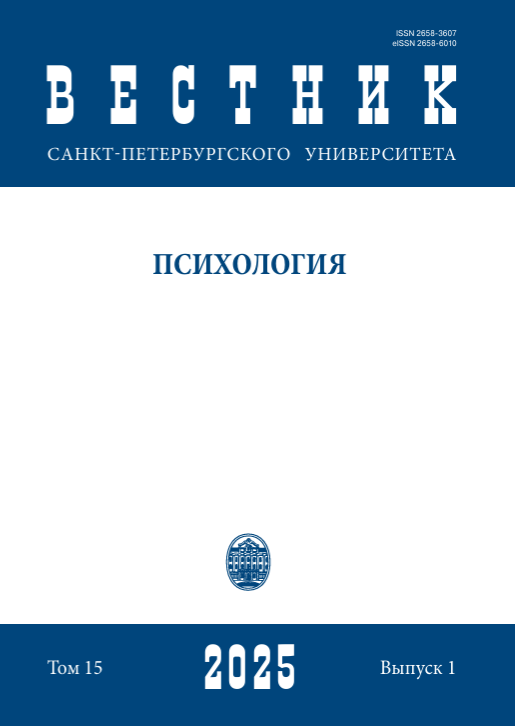Representations of good and evil in people with high and low self-actualization
DOI:
https://doi.org/10.21638/spbu16.2025.108Abstract
The article presents the results of an empirical study of the ethical representations of people with different levels of self-actualization. Ethical representations, particularly those related to good and evil, not only define the moral coordinates of a personality but are also directly connected with the implementation of an individual’s moral stance, moral regulation of behavior, and, consequently, with characterological features. Our research hypothesis suggests a connection between an individual’s ethical representations and the level of self-actualization, which is manifested as active engagement with the environment. The study involved 170 respondents. Methods used: authors’ questionnaire “Attitude to Good and Evil” based on two concepts of good and evil from philosophical ethics (evil as an independent entity fighting good, and evil as the absence of good); the Dark Triad questionnaire (SD3), the Light Triad questionnaire (LTS) and the Self-Actualization Test (CAT) by Everett Shostrom. The results of the study showed that a high level of self-actualization is significantly associated with a dialectical view of the relationship and struggle between good and evil, when evil is seen as a necessary condition for personal growth, while a low level of self-actualization is characterized by the presentation of these categories as mutually exclusive. The relationships between the indicators of the Dark and Light triads and Self-actualization are also shown. The results of the work confirm the hypothesis about the relationship between representations of good and evil and self-actualization, and also complement the ideas about the place and role of selfactualization in moral psychology.
Keywords:
ethical representations, self-actualization, good and evil, Dark and Light Triads, moral psychology
Downloads
References
References
Downloads
Published
How to Cite
Issue
Section
License
Articles of "Vestnik of Saint Petersburg University. Psychology" are open access distributed under the terms of the License Agreement with Saint Petersburg State University, which permits to the authors unrestricted distribution and self-archiving free of charge.




